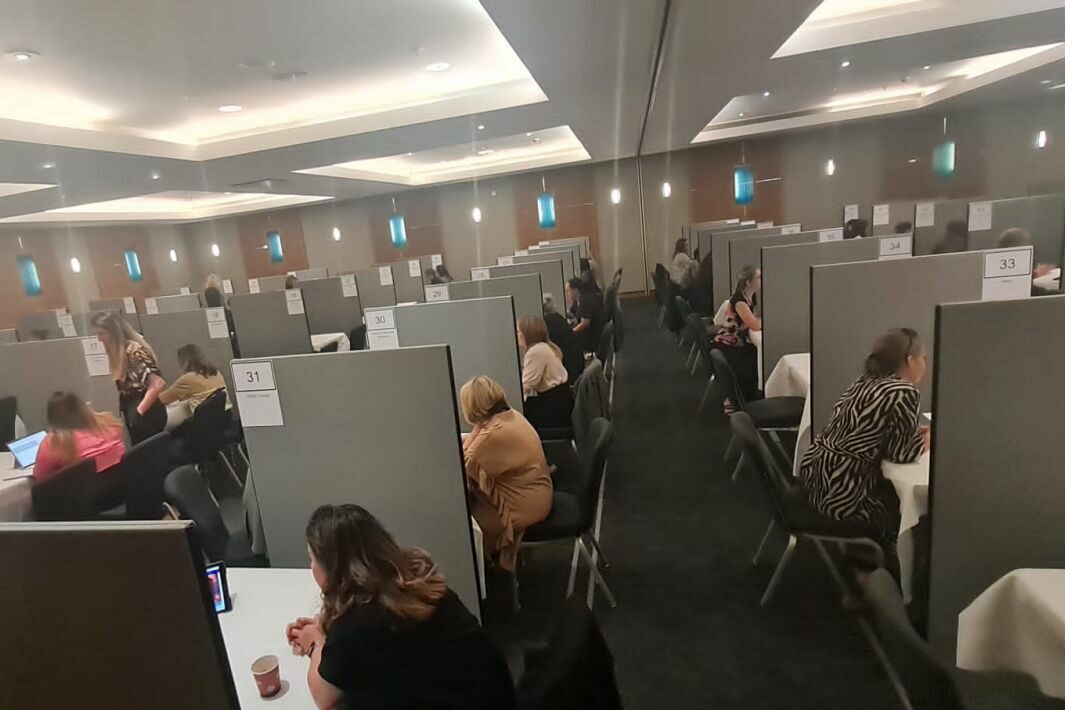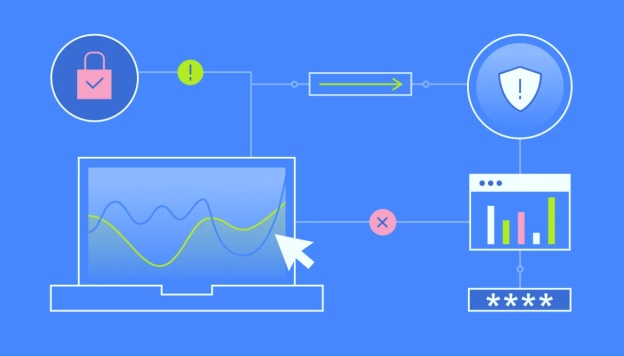The working world is changing. More and more across the country are looking for the opportunity to work from home, at the hours of their choice and with a better sense of control than previous generations. Flexibility is key, and the ever-connected digital age has made employment more accessible than ever before, with many making the jump out of the office and into the life of a VA, or Virtual Assistance.
Talking to Toby Cruse, experienced VAs Vicki Doudelle (VD), Joanne Munro (JM), Joanne Hawkins (JH) and Donna Redshaw (DR) give their top pointers on how to make the most out of becoming a VA, and what to look out for on your journey.
Most VAs start off as a PA before making the transition, what encouraged you to make the change?
JH: I was working in an organisation that had suffered immensely with the recession, I was covering the Office Manager role. I knew I would end up having to take a huge step back to a more junior role and I wasn’t prepared to do that.
JM: I didn’t actually start out as a PA, I worked as an event manager at a Racecourse and before that I worked in hospitality. Since I was small I always had the feeling that there had to be more to life than working all day for someone else and not feeling as if I was truly living my life. I’m very much a problem solver and I like helping people achieve their goals and I just fell into it really.
What impact has becoming a VA had on your life?
VD: Massively! I was very much a career EA before children & moving to France, so to not be able to find a job here was really hard on my moral and in turn life was not great, my confidence took a real knocking and I doubted everything I had set out to achieve in the move. I entered the VA world with pigeon steps but 5 years on I feel in control, my confidence has sky rocketed, I love being a business owner and choosing how I run my work & personal life.
JH: I am in total control of my destiny, I make the decisions that are right for my life and my family, it gives me greater flexibility to spend time with my whys (grandchildren and family) and enabled me to position myself as the expert I always thought I could be.
What’s the biggest misconception you come across when talking about your job with others?
JM: People either seemed to think that I was like a £10 an hour temp or they couldn’t really get their head around what I did at all! I think a lot of people seem to live in a very old-fashioned world when it comes to work nowadays. They seem to have an idea of what you do based on very outdated models.
DR: People think that you are an employee, you’re not. You are your own boss and you have the right to say yes and no to what you do. I didn’t like working with Social Media, I would get too distracted, so never took on work that required this task. If you don’t like doing something then don’t do it.. it’s the quickest way to fall out of love with your job.
VD: The biggest misconception is that anyone can do it! This just isn’t true; It takes guts, dedication, a thick skin and a strong mindset to make it work as a business. If it’s pin money you are after, then sure, anyone and everyone could do part of it – but the actual ins and outs of running a support service are challenging and not for the faint hearted.
Donna, you ran your own VA business for nearly five years, how quickly did you gain traction within the industry?
DR: It was around 4 months before I received my first real client and then it very quick took off from there. Within 6 months I was so busy I needed an extra pair of hands and I was offered an office within one of my clients buildings so it was all falling into place. I didn’t go on any VA training courses and picked up everything I know from online forums and Google searching, always making sure any affiliations I made were with the right memberships. Winning VA of the Year was a huge boost to my profile.
What ultimately made you decide to make the jump from VA back to PA?
DR: We became a casualty of our own success. We supported a few companies so well that they were able to expand, this then meant that they could afford to take on their own full time members of admin staff, making our service redundant. I thrive on working in an office environment and as much as I could have pulled the company back to just me and work from home, I knew that it wasn’t what I wanted, I wanted to be around people in a busy office so back to a PA role I went.
The office life was big factor in returning to PA work, but did colleagues, bosses or general drama contribute to anyone leaving the traditional workplace?
JH: In some aspects yes, as outlined above, I also had a 3 year old granddaughter at the time and wanted to spend time watching her grow up, my daughter also worked with me as an office junior and I didn’t want her to miss out on the important parts of her daughter growing up, she is now also self-employed as a VA and has the same flexibility as I do.
JM: Definitely! I personally have always hated working with other people; I find office politics petty and unproductive, managers often have their own agenda, and many colleagues are lazy and incompetent. The profits over people culture of my last job was definitely a deciding factor in me leaving to set up my own business.
More PAs than ever are becoming VAs, what do you think newcomers need to be aware of when taking their first steps?
JH: Mainly it is a feeling of desperation to get work, we have all taken on work for less money than we are worth in the beginning or worked with people that don’t appreciate or understand how to work with a VA, we need to see ourselves as partners and credible business owners, equal to our clients and get them to understand that we work alongside them, not ‘for them’.
JM: To be a good VA you need to be very much focused on details – and most of VAs naturally are because they come from an admin background – but you need a big picture mindset to be a successful business owner. These are two very different things and you need a combination of both, details to be able to manage clients and the work but bigger picture skills to manage and steer your own business. PAs are usually told what to do throughout their entire working career, so it can be harder to make business decisions once they start working for themselves.
DR: Don’t put all your eggs in one basket! Make sure that if one client leaves you it’s not going to tip you over. I think it is better to have 10 small customers than one large one. Also you don’t need to be the best at everything, if you struggle with aspects of your business then outsource this to another VA or an expert that deals with this, you wouldn’t ask a plumber to fix your car so if you don’t have the skills don’t struggle on, get help.
How much has the industry changed since you became a VA?
JH: Social Media has a massive impact, it makes the marketing of what we do a lot easier, especially through video. The support network that VAs have access to has also increased, VAs now do not see colleagues as competition, in the main, we all try to work together to grow our skill base and associates to ensure that clients get the best job done by the best person.
DR: Technology has changed the industry so much and I don’t think it is all for the best. With social media and even email people expect you to be on call 24/7, this is where a work life balance really falls over, just because you have had a thought at 2 in the morning, doesn’t mean that your VA or PA should jump to attention and respond by 2.05. I think a lot of the old skills such as audio typing and letter writing are being lost, which is a real shame.
VD: There are so many of us now – I’m not an old-school VA, but neither am I a newbie, but there are so many VAs now with different strengths, it’s incredible. Social Media has had a massive influence on my VA life, without it I wouldn’t have the networking or support community I have now, most of my clients have found me either via the VIP VA client matching service or via LinkedIn. Plus it’s also taught me how to tell a story online and a brand that is authentic and true to what I do.
Jo, you also left your job as a VA, but would you ever go back?
JM: I used to get a lot of emails and calls from people who wanted to set up their own VA business. They said my website was really modern and didn’t look like all the other VA’s and could I give them advice on how to set up their own business. I loved being a VA but I love what I do now even more, and being in a position where I can change people’s entire lives is just incredible.
If you were starting out again tomorrow, what would you do differently? What would you tell yourself?
DR: I would make a better plan of what I wanted to get out of the business, what my goals were and what my expectations would be. I would definitely engage with a marketing person to do the selling for me, I realised far too late that this was not my forte and if I would have outsourced that area, I could still be running Diamond today.
JM: I’m not sure if I would do many things differently. I didn’t follow what everyone else was doing and I think that was definitely key to my success and how I ended up creating The VA Handbook.
JH: I would tell myself to be more comfortable being just me, don’t try to be a second rate somebody else. Believe that you are an equal to other business owners and that you have just as much right to be out there helping others as any organisation. Don’t undervalue your worth and charge what you deserve.
VD: I would have done it so differently – I would have invested in myself and treated it like a business from Day One. There are so many available options for starting out, from moving from PA to VA, that there are no excuses not to do it this way, most even offer payment plans which make it totally affordable. I would have invested some of my redundancy money in a website, training and a business mentor – there is absolutely no question about that!
 Vicki Doudelle became a freelance virtual assistant and founded The VA Bee after moving to Bordeaux and discovering that continuing her career as a corporate EA in France was incredibly difficult without the right French qualifications. With over 10 years of corporate experience, Vicki now offers executive business support to entrepreneurs, start-ups and small businesses with their administrative and back-office needs.
Vicki Doudelle became a freelance virtual assistant and founded The VA Bee after moving to Bordeaux and discovering that continuing her career as a corporate EA in France was incredibly difficult without the right French qualifications. With over 10 years of corporate experience, Vicki now offers executive business support to entrepreneurs, start-ups and small businesses with their administrative and back-office needs.
 Donna Redshaw made the jump back to being a PA after several successful years running her own VA company. Her new role at Ochresoft Technologies has given back her confidence and she has now been accepted onto a Chartered Management Apprenticeship which will give her the skills she needs to make her way to the top of a company once again.
Donna Redshaw made the jump back to being a PA after several successful years running her own VA company. Her new role at Ochresoft Technologies has given back her confidence and she has now been accepted onto a Chartered Management Apprenticeship which will give her the skills she needs to make her way to the top of a company once again.
 Joanne Munro is the founder of The VA Handbook website. She has a community of nearly 7,000 people in her ‘VA Handbookers’ Facebook group and helps women from all over the world take control of their own lives by setting up and then running a successful Virtual Assistant business.
Joanne Munro is the founder of The VA Handbook website. She has a community of nearly 7,000 people in her ‘VA Handbookers’ Facebook group and helps women from all over the world take control of their own lives by setting up and then running a successful Virtual Assistant business.
 Joanne Hawkins left her position as VA to found Executive VPA five years ago to showcase the benefits of working with VAs as ‘business partners’ rather than as ‘just a VA’. Joanne educates both businesses and VAs on the importance of working side by side. Authentic, real and with a visible passion to see others succeed, Joanne’s impact has been nationally recognised, and she established the first ever North West VA Conference in 2015.
Joanne Hawkins left her position as VA to found Executive VPA five years ago to showcase the benefits of working with VAs as ‘business partners’ rather than as ‘just a VA’. Joanne educates both businesses and VAs on the importance of working side by side. Authentic, real and with a visible passion to see others succeed, Joanne’s impact has been nationally recognised, and she established the first ever North West VA Conference in 2015.
Are you prepared to become a VA? Let us know on Twitter, Facebook or LinkedIn.









